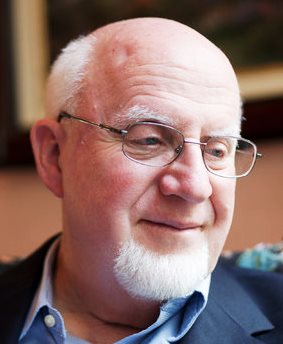
A gracEmail subscriber says that for many years he read his Bible, did good deeds, struggled against sin, and supported his church–but never enjoyed a strong confidence of salvation. One day while reading Ephesians 1:13, he heard Paul refer to the gospel as “the good news of our salvation.” He realized that we are saved through the faithfulness of Jesus Christ as our representative, not through some record of our own performance–and he has felt at peace with God ever since. Lately, however, he has been troubled by the nagging question: “But what if I am wrong?”
* * * * *
There is no possibility that we are wrong for approaching God in humility, sincerely confessing that we have sinned and that we continually fall short of his moral splendor and his beauty of character (Rom. 3:23). We will never be wrong in saying that Jesus died to save sinners–sinners of all sorts and kinds. Classy, sleek, sophisticated sinners. Filthy, willful, habitual sinners. Sinners who lack all earthly advantages, and sinners who appear never to encounter a problem or difficulty in the world. Not one of them is without the need of a Savior, and there is not one of them whom Jesus cannot save.
God loved us before we loved him; indeed, he loved us while we were still his enemies and in rebellion against our Creator (Rom. 5:1-11). We will never be wrong in believing–and in telling others–that Jesus offered himself as a sacrifice to expiate our sin (Rom. 3:23-25). God was pleased with Jesus’ offering made one time for all times, for it was the gift of a sinless and faithful human life (Heb. 10:1-12). Based on that sacrifice, God has forgiven us and adopted us into his family as his sons and daughters. In Ephesians 2, Paul summed up this story in three phrases: (1) You, being dead in trespasses and sins. (2) God, being rich in mercy. (3) You, being saved ones by grace through faith. And, did you notice–the only thing we contribute to the process is the sin.
These truths are the core of the gospel, the good news of our salvation. They are trustworthy sayings and by them we can safely live and die. If you ask God to reveal himself to you, and submit your life to his leading, he promises to give you understanding as you need it for daily life (Phil. 3:15; Col. 1:9-10; 2 Tim. 2:7). Finally, it is helpful, in thinking about our own salvation, from time to time to read the Gospel of John, which was written so that we might have life (John 20:30-31). It is also encouraging to read the epistle of First John, which was written so we might know we have life (1 John 5:13). Corrie ten Boom said it well: “Look at Jesus and be at rest.”